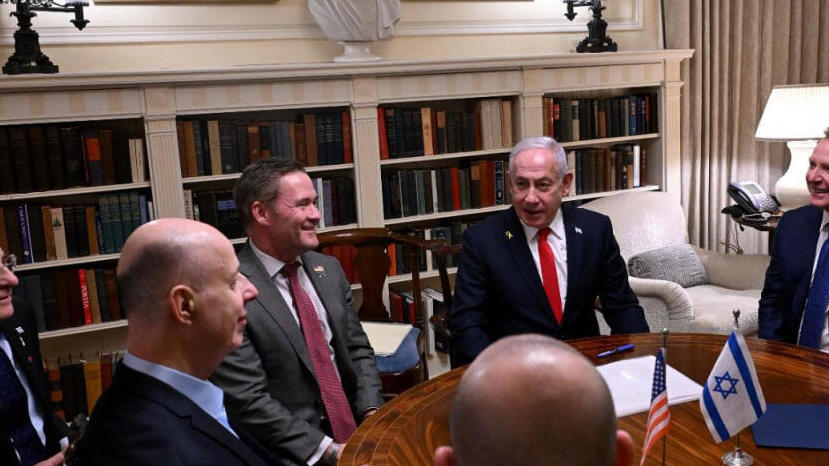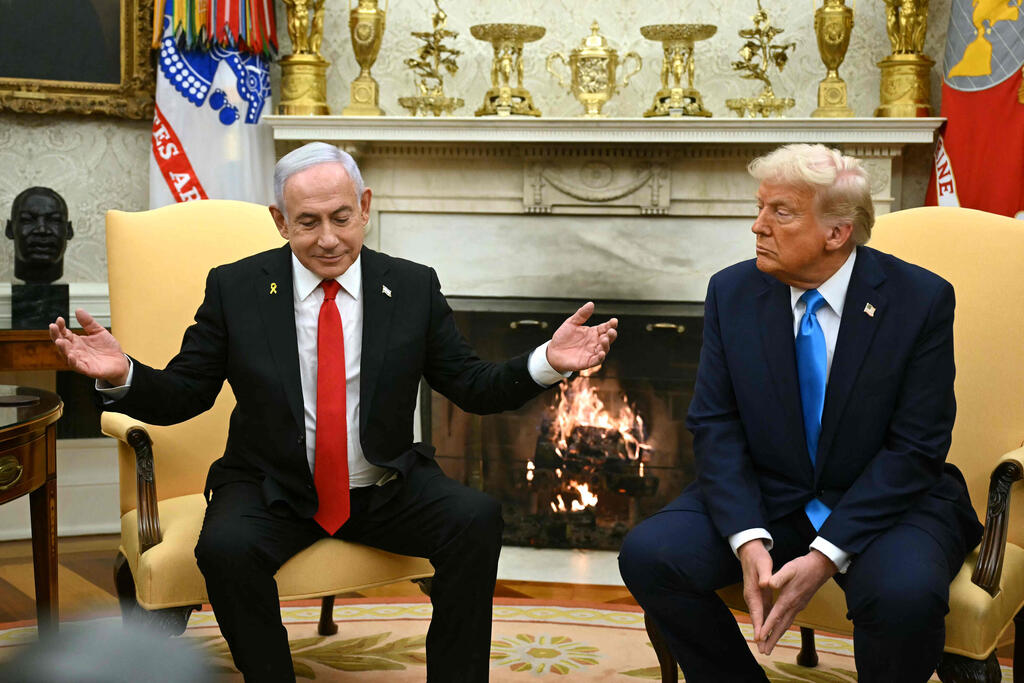One of the key reasons behind the abrupt dismissal of National Security Adviser Mike Waltz earlier this week was his involvement in “intense coordination” with Prime Minister Benjamin Netanyahu regarding a potential military strike on Iran, just hours before a scheduled Trump-Netanyahu summit, The Washington Post reported on Saturday, citing two senior administration officials and Trump advisers.
The report said President Donald Trump had grown increasingly frustrated with Waltz, who was perceived as hawkish and overly eager to resort to military force. He reportedly clashed with senior administration figures over military policy, particularly on the issue of whether to launch strikes against Iran.
According to The Post, the final straw in Waltz’s tenure was the so-called “Signalgate” affair in which he inadvertently added the editor of The Atlantic magazine to a Signal group chat discussing sensitive military plans for airstrikes in Yemen. The fallout from the leak further undermined Waltz’s position.
On Thursday, Trump announced Waltz’s reassignment, nominating him to serve as U.S. ambassador to the United Nations. Secretary of State Marco Rubio will take over as national security adviser.
4 View gallery


Waltz and Prime Minister Benjamin Netannyahu meeting in the White House, last month
(Photo: GPO)
In a Truth Social post, Trump praised Waltz’s record in the military, Congress and the White House, saying: “I know he’ll bring the same dedication to his new role. We will continue fighting tirelessly to make America—and the world—safe again.”
According to The Post, Trump was particularly angered by Waltz’s conduct in early February, when Netanyahu visited the White House. That day, Waltz was reportedly deeply engaged in coordinating with the Israeli leader on military options against Iran. Two sources said Waltz supported Netanyahu’s position and pushed the view that “time was ripe” for action against Tehran.
4 View gallery


Netanyahu and Trump in the Oval Office in February
(Photo: ANDREW CABALLERO-REYNOLDS / AFP)
“Waltz wanted to take U.S. policy in a direction Trump wasn’t comfortable with because the U.S. hadn’t attempted a diplomatic solution,” one source told the paper. “It got back to Trump and the president wasn’t happy with it.”
Get the Ynetnews app on your smartphone: Google Play: https://bit.ly/4eJ37pE | Apple App Store: https://bit.ly/3ZL7iNv
The episode has reportedly led some senior officials to question the continued need for a traditional National Security Council structure. They expressed satisfaction with Rubio’s appointment and suggested that Waltz’s exit could mark a shift in the NSC’s influence, which has historically played a central role in shaping U.S. foreign policy.
A White House official, a Trump adviser and another individual familiar with the matter told the paper they “increasingly felt [Waltz] was not a good fit for the president.”
A Trump adviser added, “If Jim Baker was doing a side deal with the Saudis to subvert George H.W. Bush, you’d be fired. You can’t do that. You work for the president of your country, not a president of another country.”
Despite the mounting tensions, efforts were reportedly made to support Waltz within the administration. According to two senior officials, Vice President JD Vance attempted to offer Waltz a lifeline in March by taking him on a trip to Greenland—a territory Trump had once expressed interest in acquiring. “The decision to take him along was in part to boost the embattled adviser days after the Atlantic reported that Waltz had inadvertently included the magazine’s editor on a planning chat coordinating military action in Yemen,” one of the officials said.



